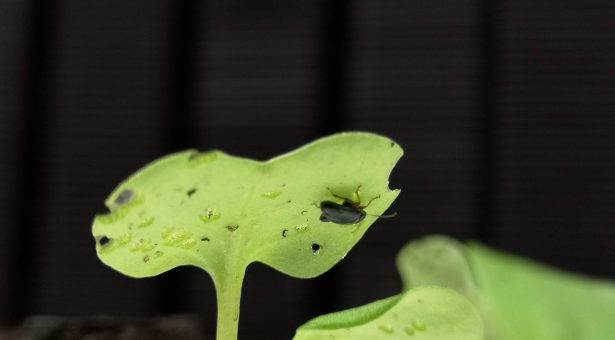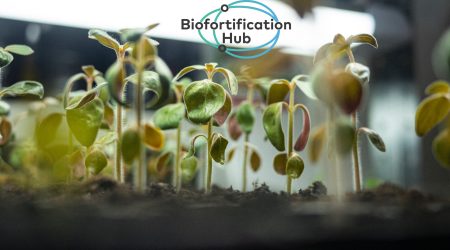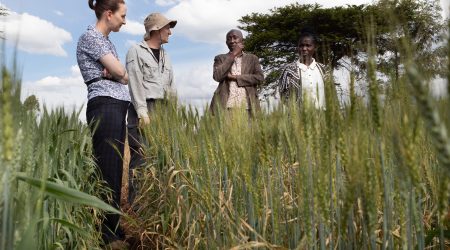Flea beetle fight gets fresh funding injection

Researchers working to combat a devastating pest of oilseed rape have been supported by a fresh injection of funds.
The £1.8m BBSRC Industrial Partnership Award (IPA) will help John Innes Centre and Rothamsted Research scientists and industrial partners working on desperately needed solutions to tackle cabbage stem flea beetle.
UK crop losses to the beetle were estimated at 6.4% in 2016/17 rising to 15% in some counties. The pest is increasingly problematic since the withdrawal of neonicotinoid-based pesticides which were previously used as seed treatments to control the beetle.
The escalation has led to questions over the future of the UK oilseed rape crop, with a decline in UK cropping area of 35% between 2012 and 2019.
In place of pesticide use which is damaging to biodiversity, the research-industry partnership led by the John Innes Centre is implementing an integrated pest management approach.
Key to this is the use of pest resistant cultivars of the crop, but there are none currently available. This project will enable researchers to identify genetic markers – landmarks in the crop genome – which will guide breeders in developing resistant varieties of oilseed rape that are less palatable to the beetle.
Further research into the lifecycle and feeding preferences of the beetle is being carried out by the entomology team and two post-graduate researchers at the John Innes Centre where the first in-house breeding population of the pest was established.
Dr Rachel Wells, principal investigator of the successful bidding team said, “This is fantastic news, and it means we can accelerate vital work in combating this significant pest.” Dr Wells, who is the Project Manager for the BBSRC SLoLa Brassica and Rapeseed And Vegetable Optimisation (BRAVO) project, added,
“The success of the bid has been made possible with the support of a strong network of industrial partners which we have built over time. Through this partnership approach we are addressing an important problem for industry, turning scientific discovery into solutions in the field.”
Dr Wells will be working with the group of John Innes Centre colleague Professor Steve Penfield who is a co-investigator in the project.
IPAs encourage and support collaboration between academic research groups and industry.
They are academic-led grants that have significant industrial involvement and industry partner(s) contribute in cash at least equivalent to 10% of the full project costs.
Industrial partners participating in this research include seven crop breeding companies: DSV, KWS, Limagrain, Bayer, Elsoms, RAGT and LS Plant Breeding, and the Agricultural and Horticultural Development Board.
Dr Sam Cook, scientific lead of the project at Rothamsted Research added, “I’m delighted that this funding has enabled a long-awaited collaboration with Dr Wells at the John Innes Centre.”
“Together with my colleague Dr Frederic Beaudoin, Rothamsted’s role in the Project is to learn more about the mechanisms that drive feeding preferences of adult cabbage stem flea beetles and the survival and development of their larvae. I believe that growing crops resistant to this pest will help to reduce insecticide use and secure UK production of oilseed rape which is important for farmland biodiversity.”



